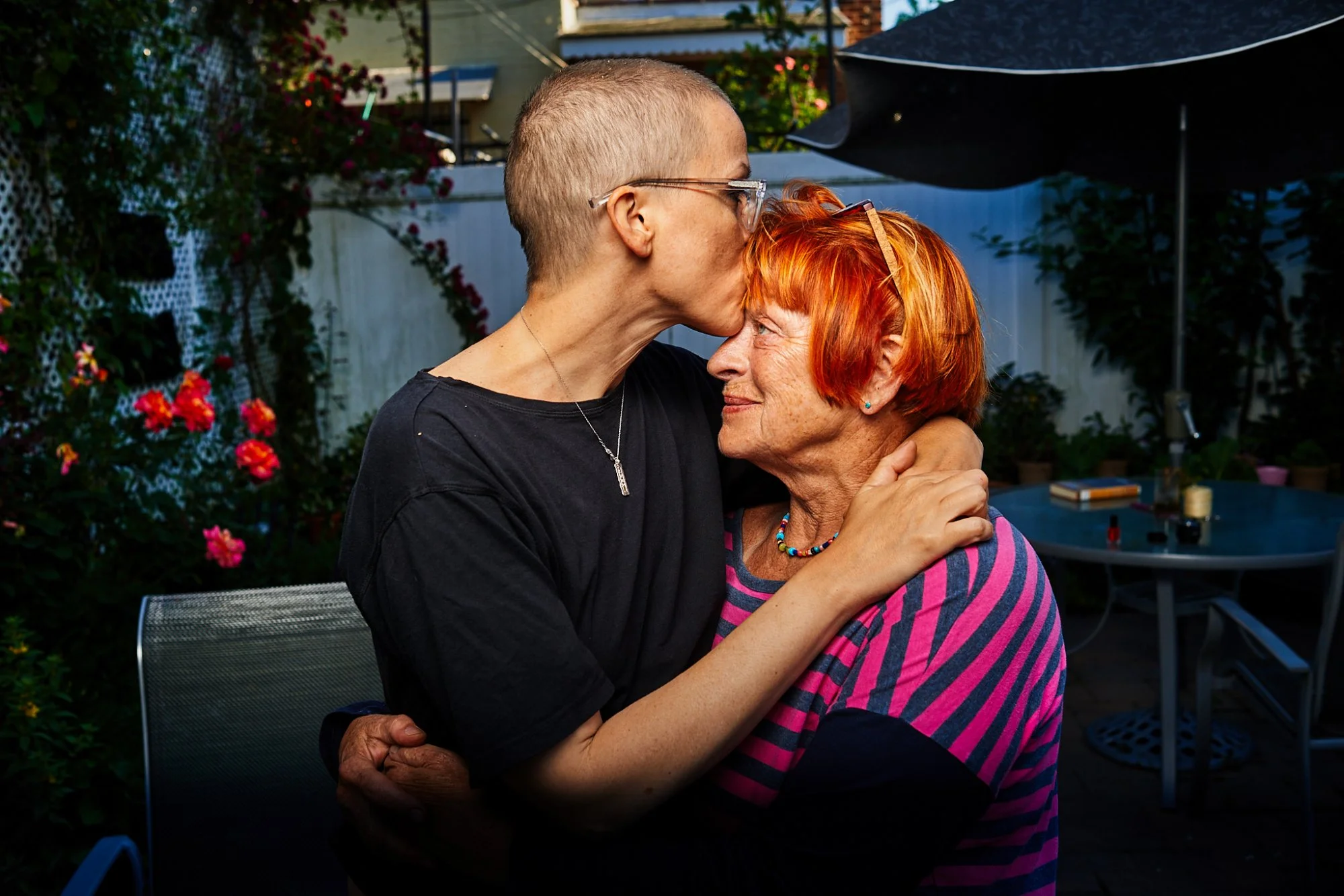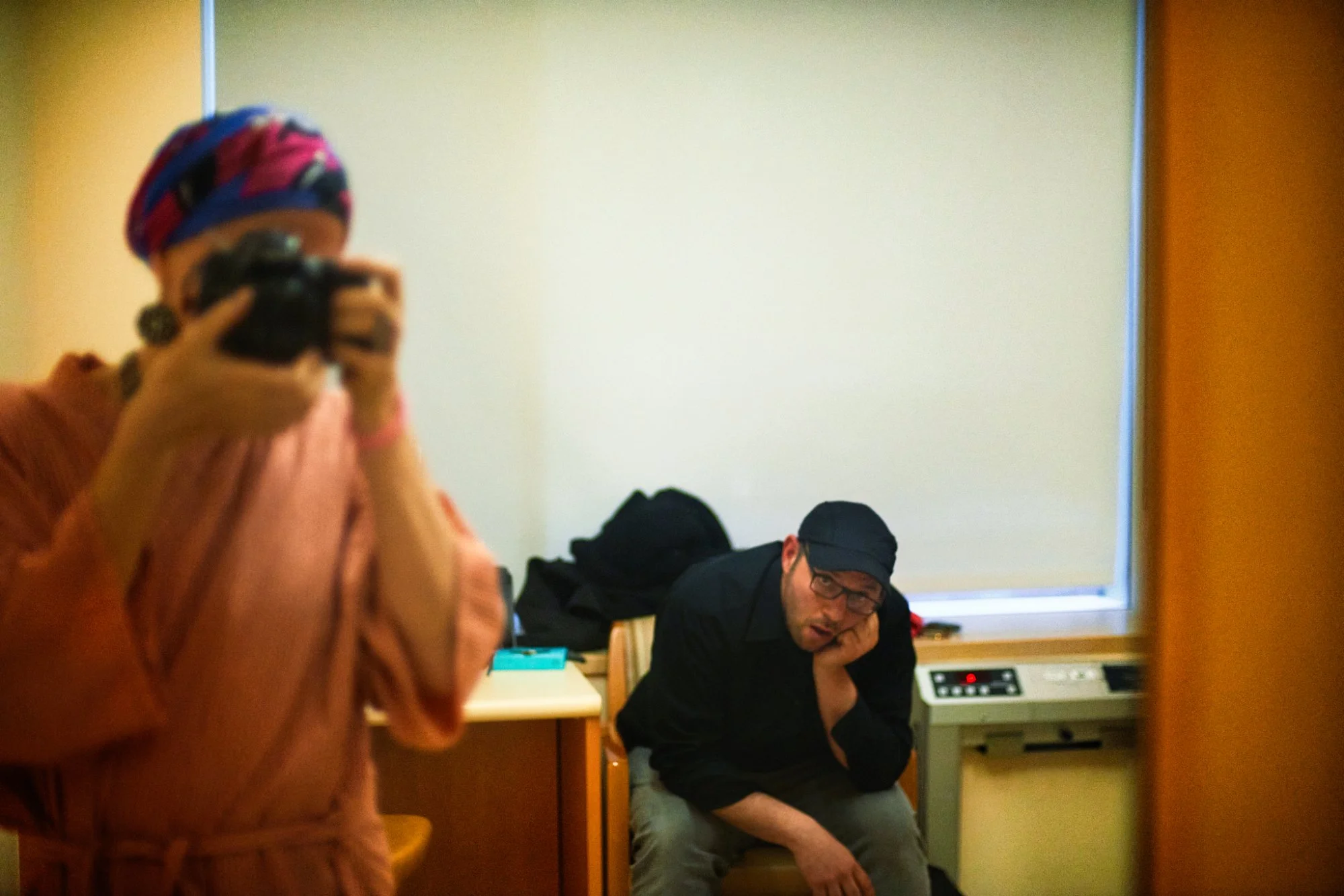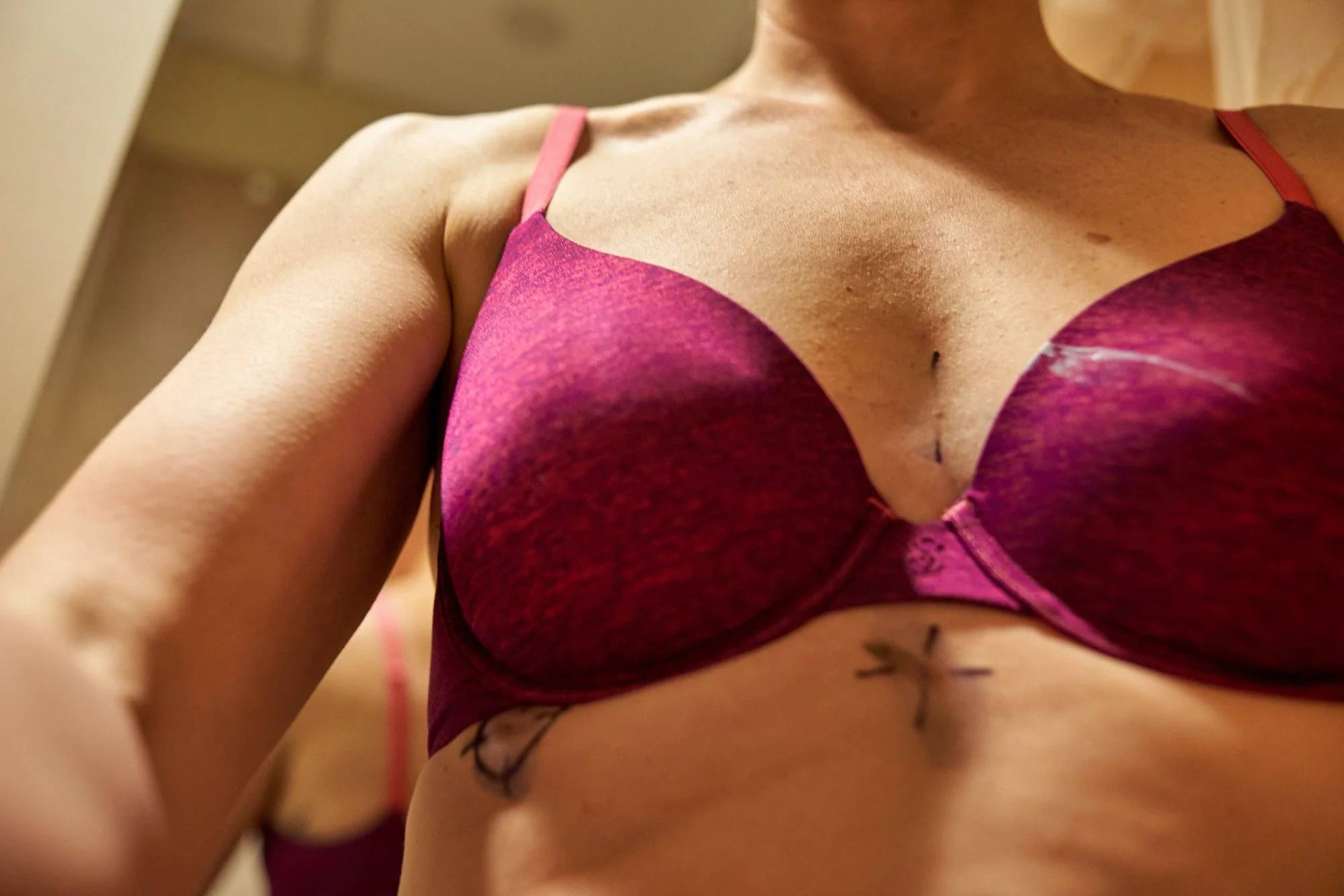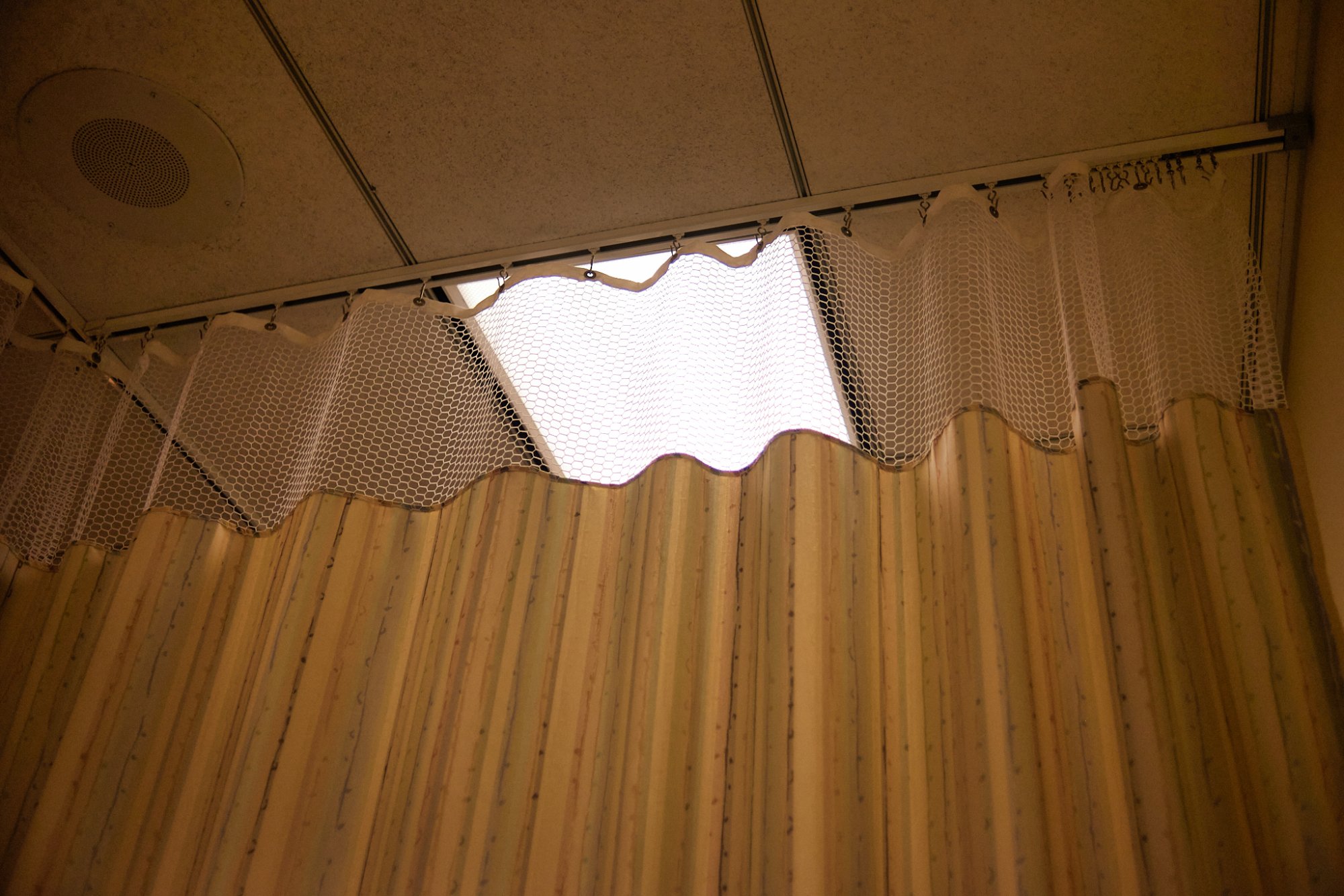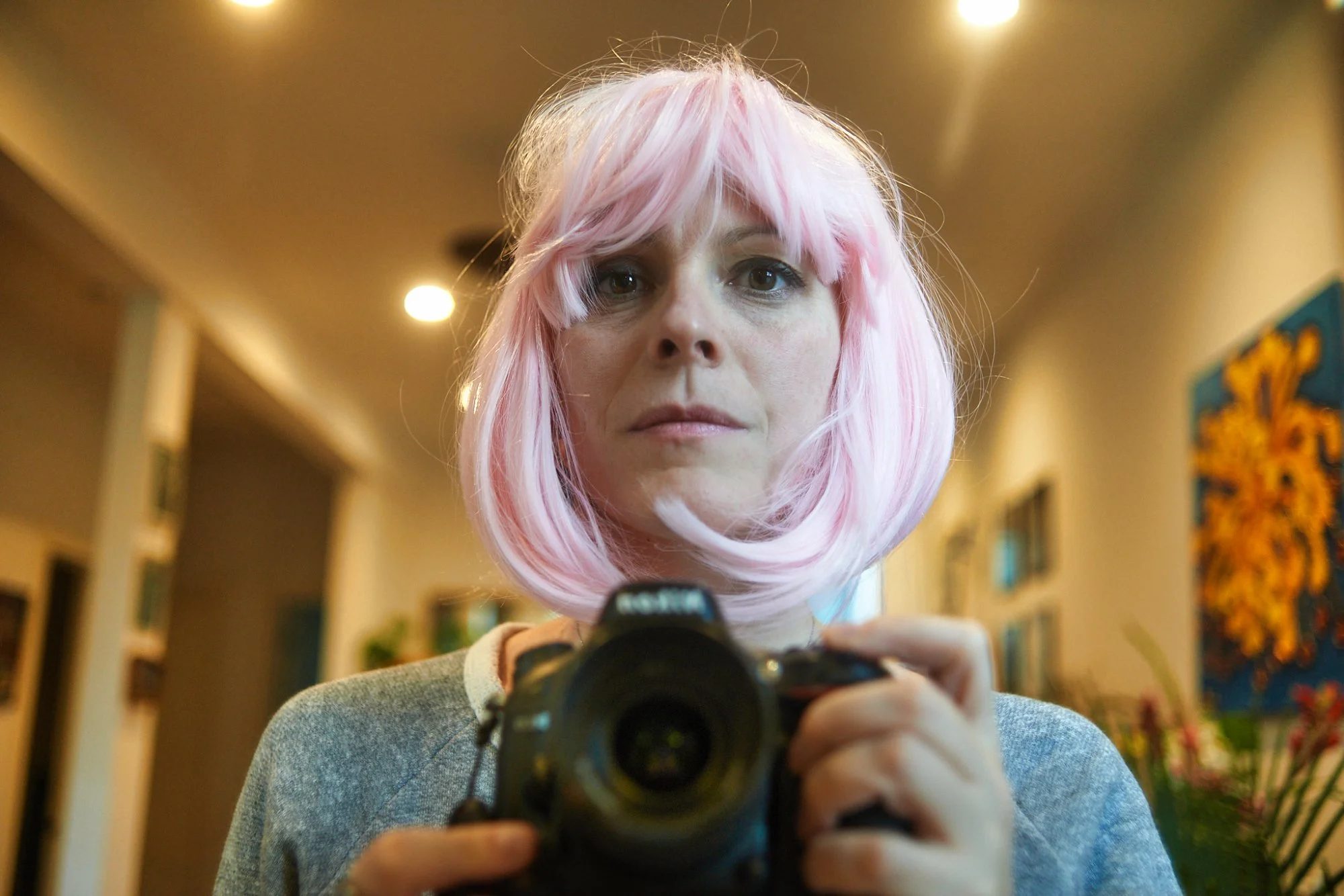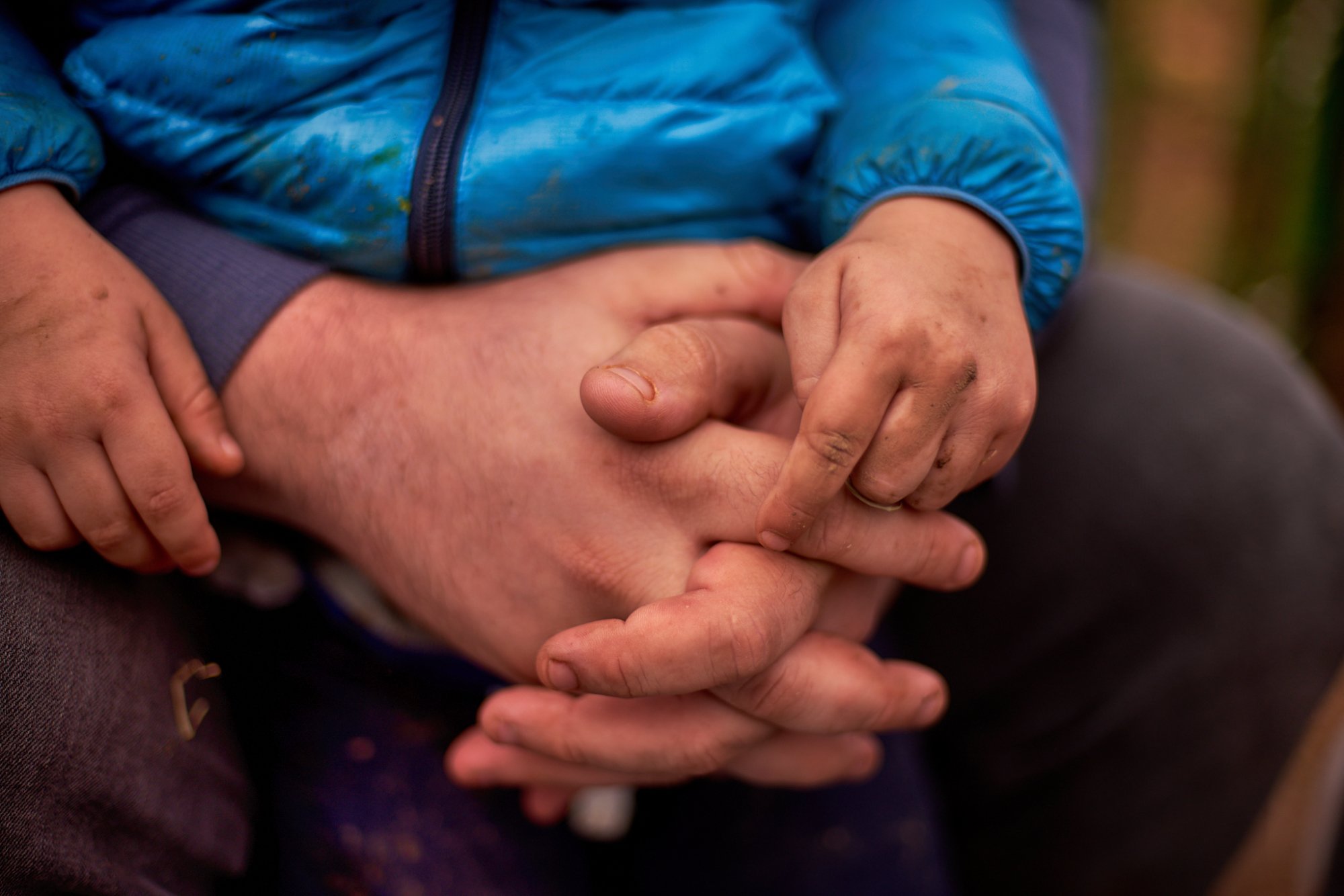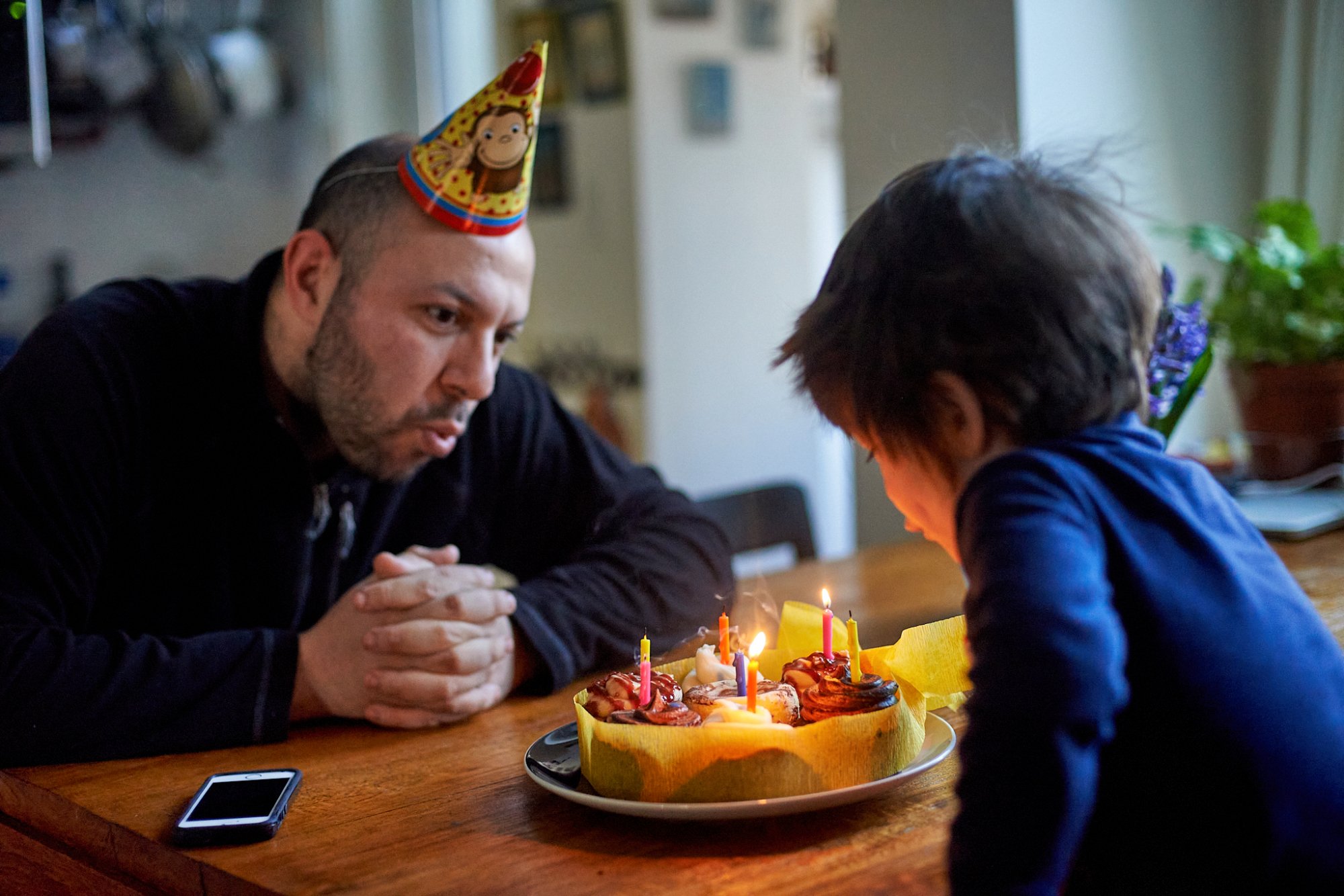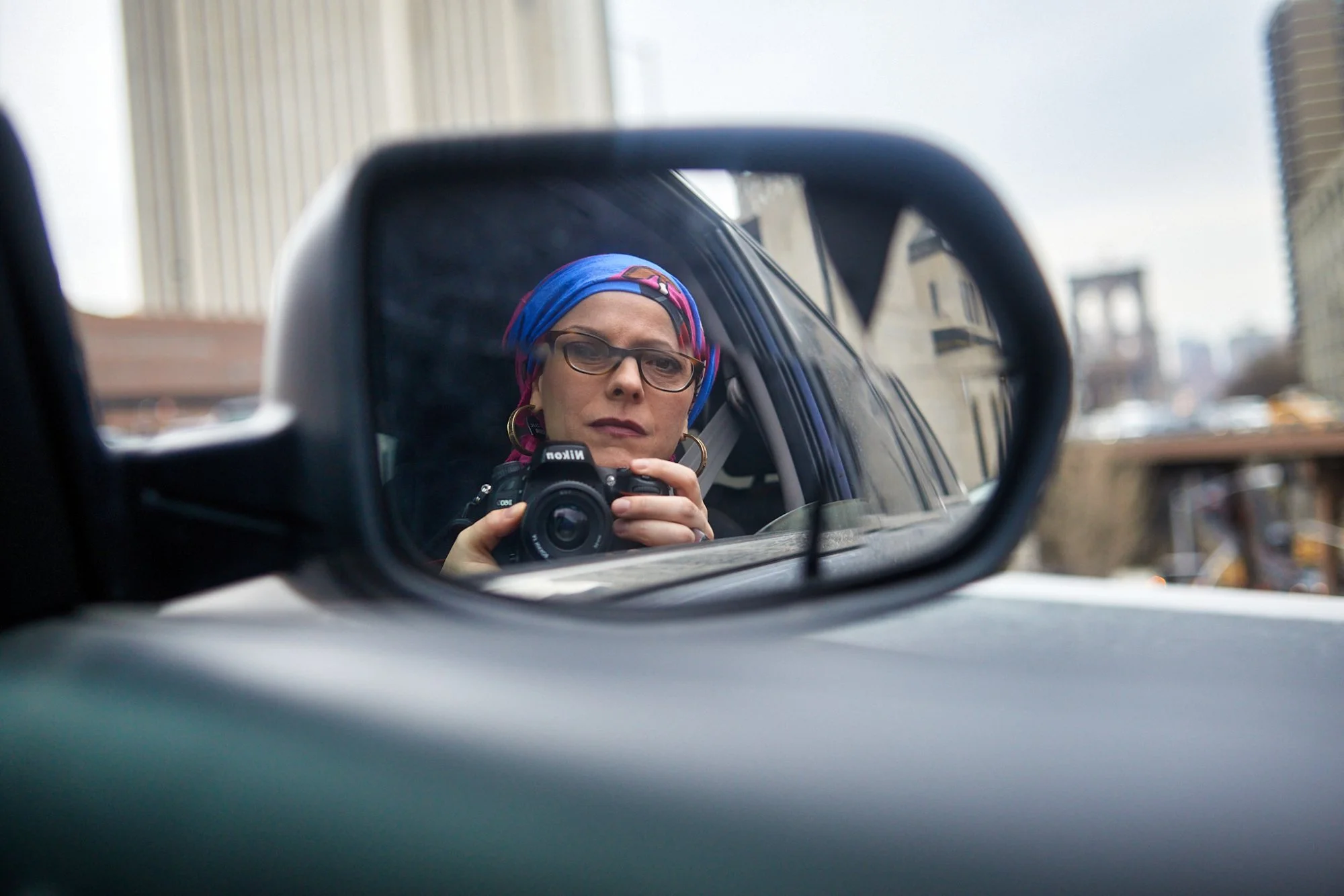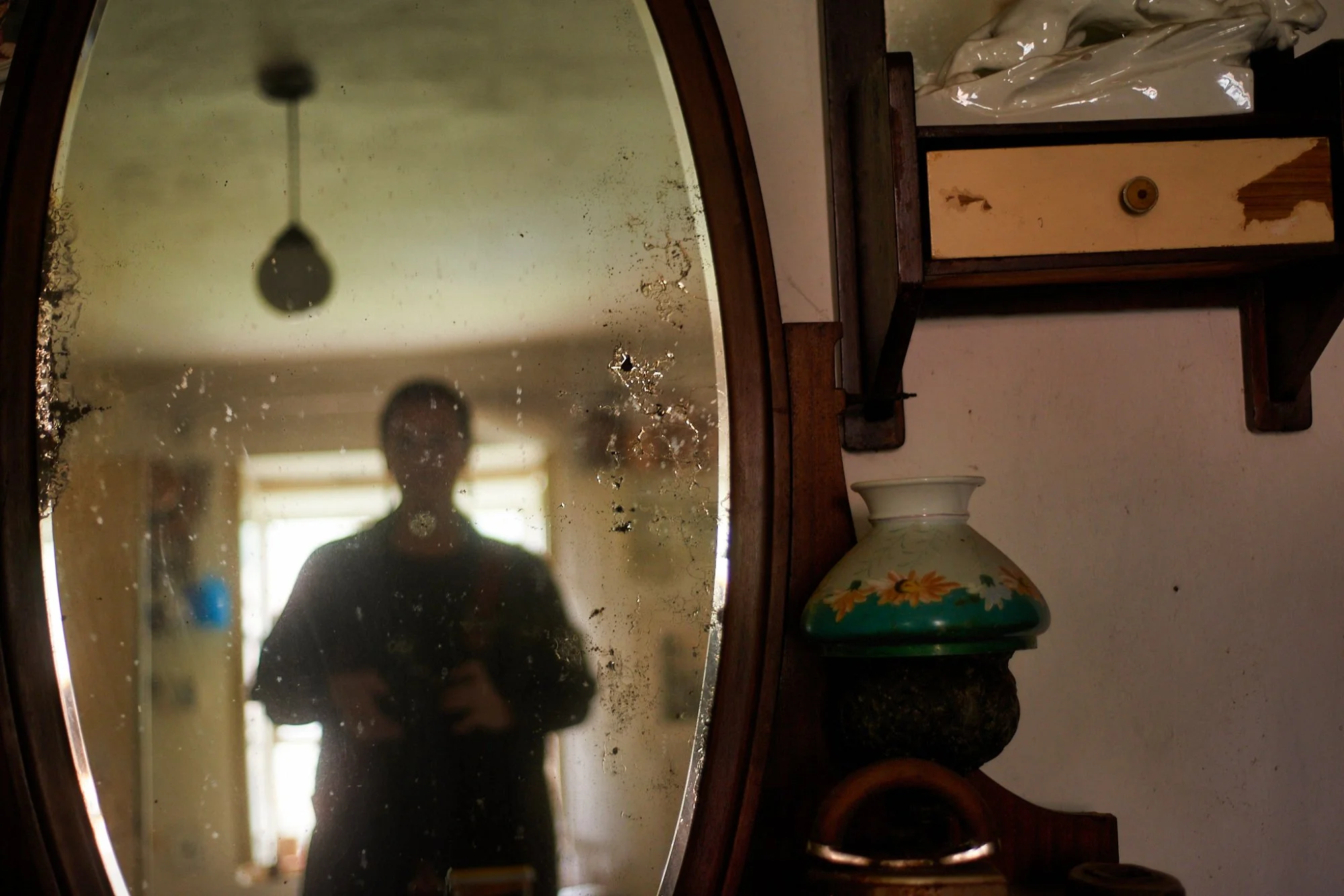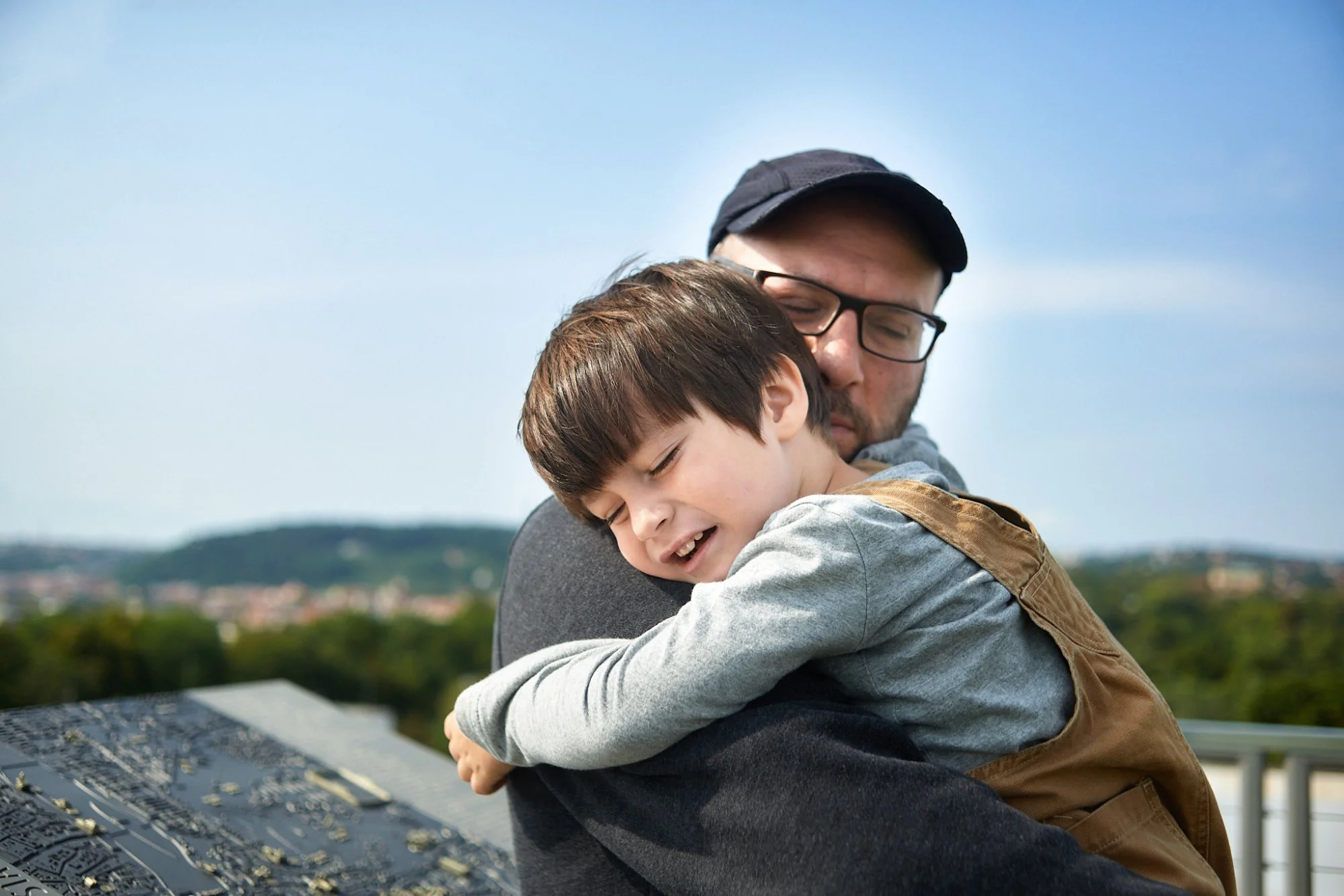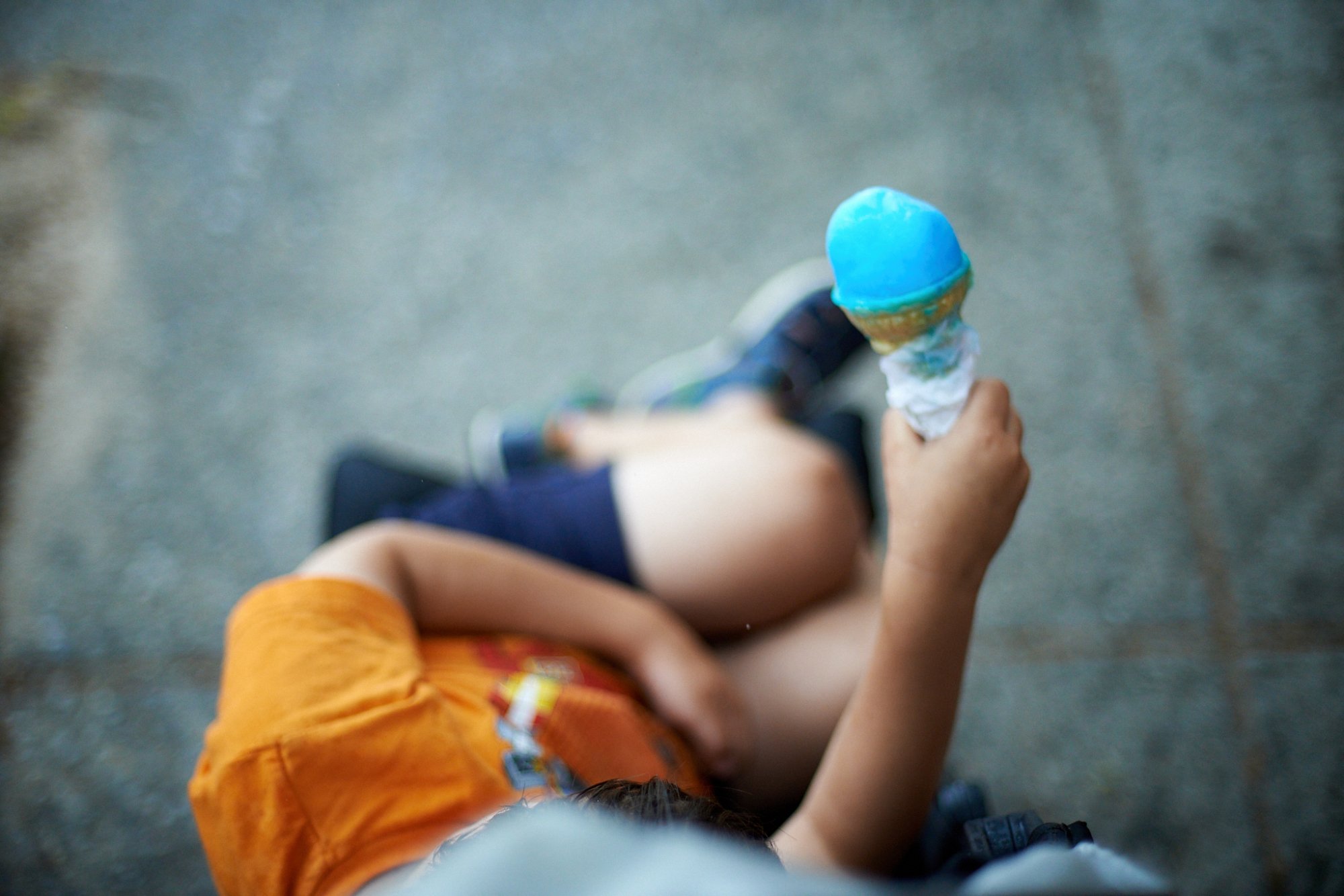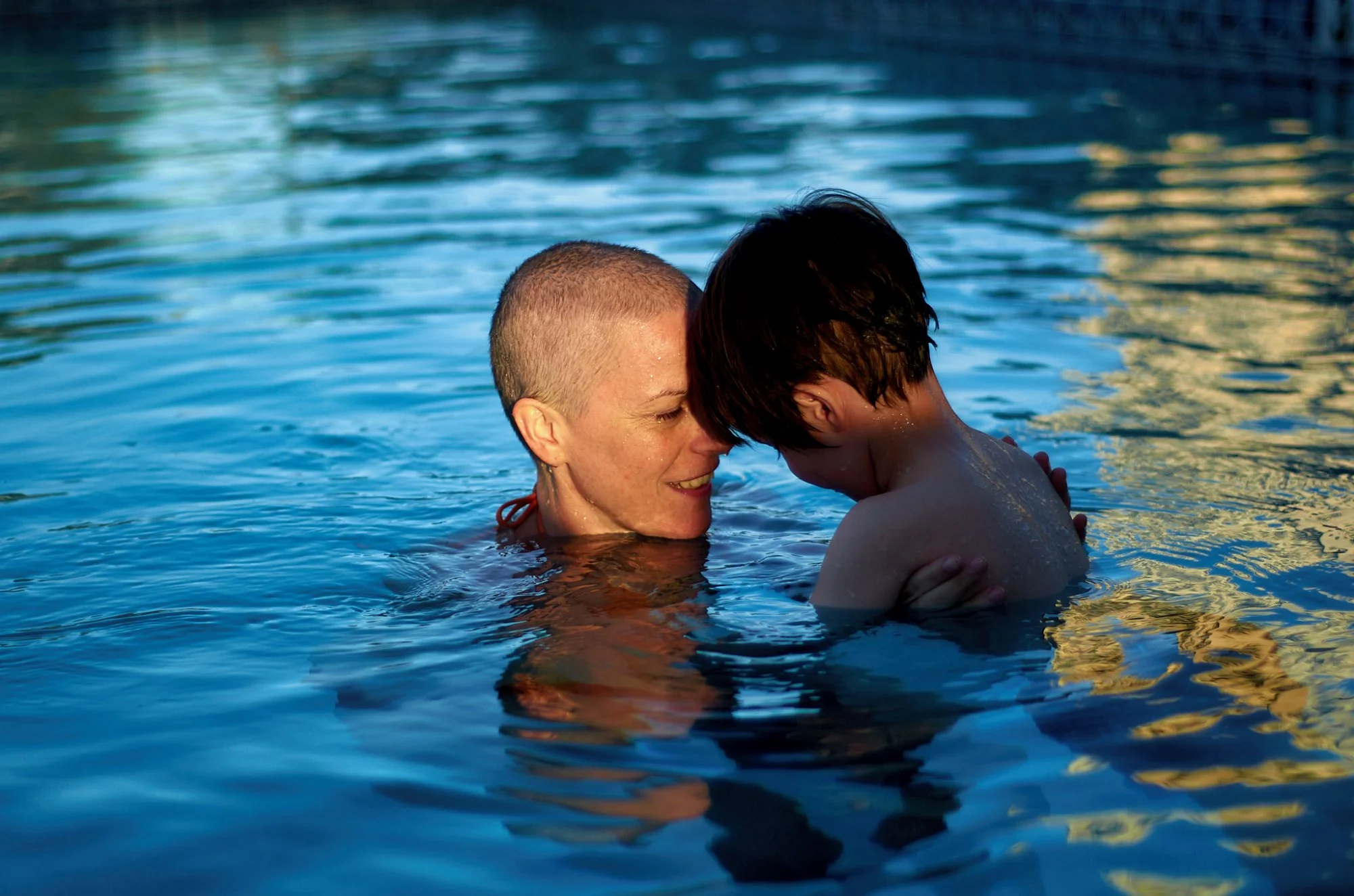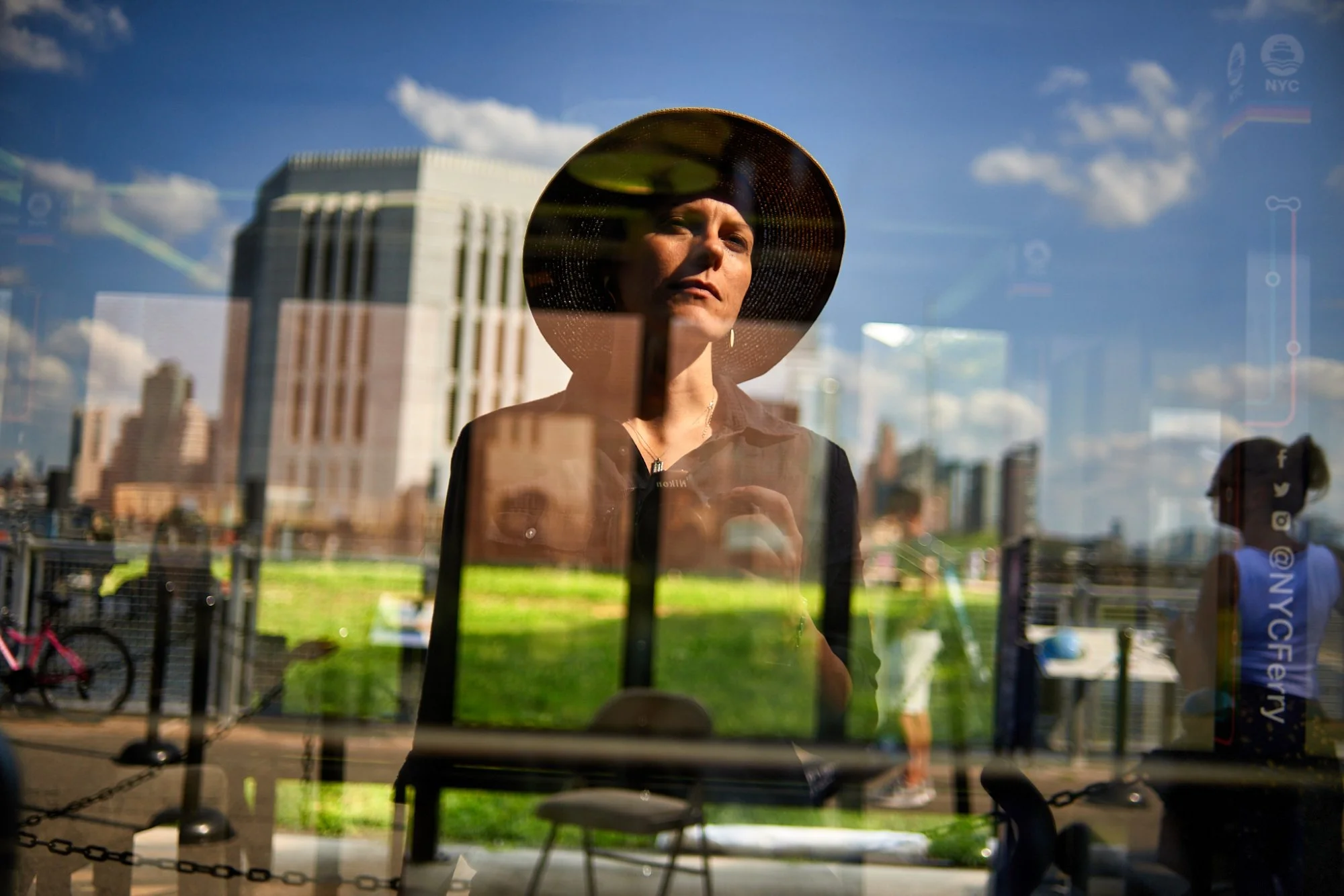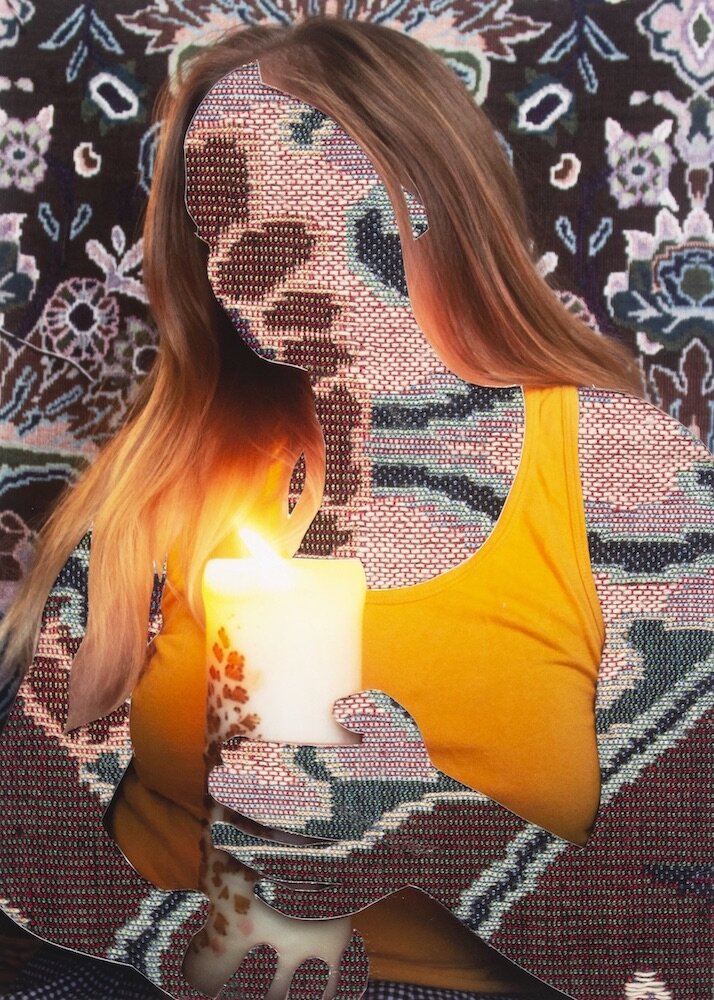Anna Rathkopf
© Anna and Jordan Rathkopf
Text by Anna Rathkopf
Images by Anna and Jordan Rathkopf
Interview by Ora Heard
How did your series Her2 come to be?
Shortly after receiving the news, "You have cancer," my husband and I, both photographers, decided to start this project. Our lives changed in an instant, and we both felt the need to use our cameras as a therapeutic tool.
From my lens, I aimed to capture the experience as a woman, mother, wife, and now a person with cancer. For me, it was an empowering way to convey the essence of facing cancer from my own perspective, and not just defined by how someone was seeing what I was going through.
But when someone in a family has an illness, the whole family experiences it with them and Jordan’s perspective as a caregiver enabled us to use our project as a vehicle for conversation between us. It became a prompt for empathy and understanding. To show how this experience shaped us individually and as a family.
© Anna and Jordan Rathkopf
How did your diagnosis affect the way you look at yourself? Did making this series help you with those feelings?
I felt shattered, and betrayed by my body. Just two years earlier, I was breastfeeding my son, and now, that breast was trying to kill me. My self-confidence was shattered, and my sense of identity and confidence was lost.
Photography offered me some control in a situation where I felt helpless. It became a source of empowerment. At the same time, creativity allowed me to distance myself from the life-threatening reality I was confronting.
Before my diagnosis, I rarely took self-portraits. But as cancer entered my life, I found myself constantly photographing myself. I needed to piece myself back together, but I could hardly recognize who I was anymore. Photography helped connect my past, present, and future, affirming that I was still me. It also served as a reminder that this was really happening.
I didn't look at these photos as I took them, keeping many from my husband and others. Years later, he stumbled upon a folder of my images we had not seen before. He told me they helped him better understand what I was going through. Many of my images were soft, blurry, and out of focus, much like how I was seeing and experiencing my life. But they also showed the things in my life that made me desperately want to live: my son blowing bubbles or playing in the snow laughing, a beautiful flower or frozen ice, and the love for me from Jordan and my family.
© Anna and Jordan Rathkopf
What made you want to share your experience publicly?
At first, it was about raising awareness. First and foremost. One of the reasons I probably Ifound my lump was I had a friend my age who was recently diagnosed, and that made me pay more attention to knowing my body. If our story could do that for someone else, that was our first priority.
But we also wanted to share our inner worlds to create more empathy and help reframe how illness is perceived. It is not just the patient burden or the caregivers. For a lot of us, it is a shared experience. We wanted to invite viewers to share in both our perspectives, experiencing the world through both the male and female gaze, and to truly understand the emotions of being a patient and a caregiver. Both experiences come with their own challenges and feelings at times of isolation. I hoped a woman dealing with illness who felt angry but also desperate to live with joy, to see herself in me. Jordan wanted a male caregiver who felt he needed support but was embarrassed to ask for it, to see himself in Jordan.
© Anna and Jordan Rathkopf
How has your view of photography changed since this project?
This journey marked the first time I turned my lens on myself. It taught me that vulnerability is not easy, but it can profoundly improve one's mental health by fostering a sense of being seen. Our project allowed me to feel seen, not just by myself but by my family and later by a broader audience.
© Anna and Jordan Rathkopf
Did you ever reach a point where you thought about not continuing with this series?
Around two years into our project, I felt we could stop working on it. However, I continued taking my camera to every doctor's appointment. Even after my active treatment ended, there were ongoing appointments and persistent fears. Then, my mother faced her own health issues--a stroke and cancer. I found myself repeating the same routine, packing my camera bag, but this time, I was the caregiver.
Becoming a caregiver helped me understand the full complexity of illness and its impact on a family. It made me want to revisit the project, prompting us to delve deeper into the realm of cancer survivorship and the long-term impact of chronic illness on patients and caregivers. We realized that the challenges of survivorship, although less visible, are just as important to address.
© Anna and Jordan Rathkopf
Has your journey through breast cancer impacted the way you see your work? Has it changed your work moving forward?
Since my diagnosis, it has reinforced my passion for using the medium of photography to capture life and experiences with intimacy, all while providing complex and valuable insights into the lives and experiences of so many others. My focus is on emotional authenticity. I've learned to appreciate more the small and imperfect details in my subjects and themes.
© Anna and Jordan Rathkopf
What have you learned about yourself as a breast cancer survivor?
Life is fragile. And it can change in an instant. I've shifted my perspective from future planning to cherishing the present moment. I find myself stopping to admire the little things and embrace gratitude for what I have.
© Anna and Jordan Rathkopf
Describe your creative process in one word.
If I had to encapsulate my creative process in one word, it would be "feeling."
© Anna and Jordan Rathkopf
What inspires you to pursue image-making?
My inspiration comes from the belief that art can help individuals--myself included--cultivate empathy and experience wonder.
© Anna and Jordan Rathkopf
What was the last book you read or film you saw that inspired you?
The film "All Quiet on the Western Front" by Edward Berger resonated with me on an intimate level. The way it showed people adapting to an extremely terrifying situation moved me. Recently, I finished "Radical Acceptance" by Tara Brach, a book I would wholeheartedly recommend, especially to those facing challenging life circumstances.
© Anna and Jordan Rathkopf
What advice would you give to people just starting out in photography?
Stay true to yourself and focus on what ignites your passion. Be emotionally naked and vulnerable through your work.
© Anna and Jordan Rathkopf
What is your favorite podcast to listen to?
Hidden Brain by Shankar Vedantam
© Anna and Jordan Rathkopf
How do you take your coffee?
With milk


